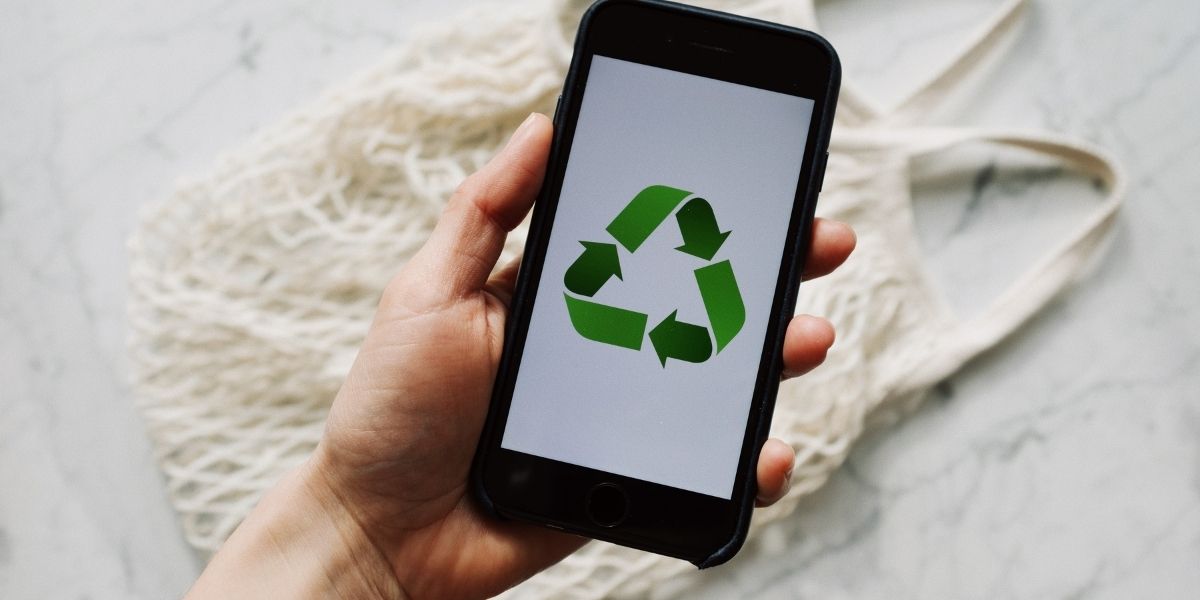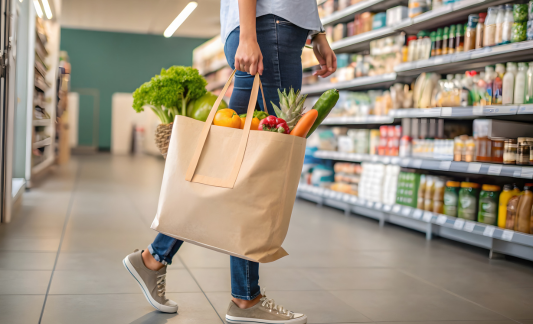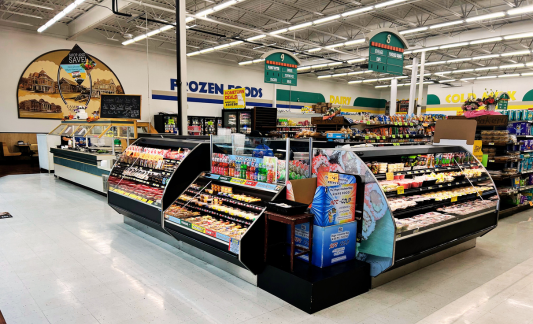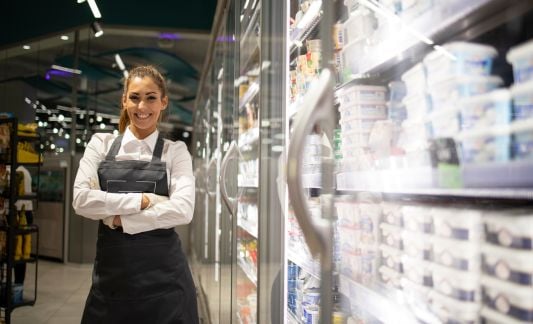Help Isom IGA recover from devasting floods

1 min read
9 Quick Sustainability Tips For Grocers & Shoppers
Written by Jessica Vician
Apr 25, 2024
Just because Earth Month is coming to an end doesn't mean independent retailers should give up on sustainable efforts. In fact, shoppers continue to look to their local supermarket to help them practice greater sustainability year-round, according the third annual Blue Yonder Consumer Sustainability Survey. 79% of respondents said sustainability concerns are very or somewhat important when choosing to buy a product or shop at a retailer.
"Supermarkets must position themselves as partners in the sustainability fight—as food suppliers and as community members," says IGA CEO John Ross. "As independents, we have a unique opportunity to lead this initiative within our communities. We know our retailers are already hyper-focused on Local Equals Fresh, so this is a logical extension of that commitment to local. By showing shoppers what we're doing in terms of sustainability, we can build shopper loyalty and therefore increase sales."
We've gathered four simple ways independent grocers can help their shoppers be more sustainable, plus five quick ways to limit food and energy waste.
"Don't leave money on the table or miss out on an opportunity to differentiate yourself by neglecting sustainability," Ross urges. "Walk the walk and show your customers what you're doing to be more sustainable."
4 Ways To Help Shoppers Be Sustainable
With shoppers wanting their grocer to be a partner in their own individual sustainability efforts, retailers can offer services to help shoppers be more eco-friendly with these options:
- Offer recycling bins on-site, especially for hard-to-recycle items that aren't accepted in home recycling collections, like plastic bags, batteries and light bulbs, and even certain electronics (like cell phones).
- Provide biodegradable bags for produce, offer paper bags at checkout, and sell reusable bags, like IGA grocery totes available from Red Oval Partner Ashgrove Marketing.
- Prioritize non-plastic packaging when possible, like glass, aluminum, or paper.
- Gamify waste reduction: offer points/prizes to shoppers for reducing waste through purchases and recycling.
4 Quick Ways To Limit Food & Energy Waste—And Tell Shoppers About Your Efforts
There are plenty of innovative and cost-cutting tactics retailers can use to reduce food and energy wastes. The first step? Use the resources available through the IGA Coca-Cola Institute — namely, the Top 5 Grocery Energy Savers and Top 10 Waste Reduction Practices classes for the most effective tactics to use right now.
Some of these tactics include:
- Avoid overcrowding the refrigerators to keep vents clear and machines working properly.
- Invest in energy-efficient coolers that extend products' shelf lives.
- Switch to an energy provider who uses green energy like solar and wind.
- Use technology to determine the right amount of food to limit waste, like BRdata's ordering system that enables retailers to optimize inventory levels and implement efficient replenishment strategies (contact sales@brdata.com for more information).
And when you make an improvement, like adding a new energy-efficient cooler, tell shoppers about it! Add a small sign/sticker next to the new cooler that says, "This refrigerator helps the environment!" Feel free to explain how—you'll be surprised how excited shoppers get about new technology.
Sustainability Food Retail Certification
Then, take the free Sustainability Self-Assessment and participate in the Sustainability Food Retail Certification to help your store achieve operational excellence and meet sustainability goals by benchmarking performance, reducing costs, and increasing margins.
When you enroll in the program, Ratio Institute, an independent, non-profit organization working with food retailers, trade organizations, and other partners to accelerate measurable sustainability and viability in the food retail industry, will visit your store and assesses opportunities to improve energy efficiencies, decrease waste, and more. Then they will make recommendations that can reduce costs and increase margins, giving retailers access to a sustainability management system to easily implement the recommendations. Retailers can track their progress thanks to benchmarking data, and earn recognition that they can then communicate to shoppers.
That recognition includes:
- An official certificate
- A digital certification seal or badge that retailers can use in marketing materials and on social media
- Listing on the Sustainable Food Retail Certification website
- Announcement of certification status on Ratio Institute’s social channels

The four certification badges a retailer can receive through the program.
Stores can receive one of four certification levels based on their initial assessment, and have the opportunity to improve each year when making the recommended changes. Levels include:
- Advocate: Complies with requirements to prevent pollution, provides safe working environment, ensures safe food products, and invests in basic efficiency measures.
- Steward: Has a public sustainability commitment, prioritizes community engagement and employee satisfaction, and prioritizes investments in efficiency improvement and impact reduction measures.
- Leader: Has clear sustainability goals and commitments to drastically reduce or eliminate the biggest environmental and social impacts of its operations.
- Luminary: Has integrated sustainability as an operational principal, and has invested in promoting the circular economy, net zero carbon, diversity, equity & inclusion, and sustainable and ethical supply chains in its operations.
Once certified, stores will also gain access to a certified stores share group for peer communication on sustainability best practices, a newsletter for certified stores, and exclusive access to the Ratio Institute hotline for sustainability.
You May Also Like
These Stories on Sustainability
Oct 28, 2025 5:11:03 PM |
3 min read
Apr 8, 2025 10:22:29 AM |
5 min read



No Comments Yet
Let us know what you think